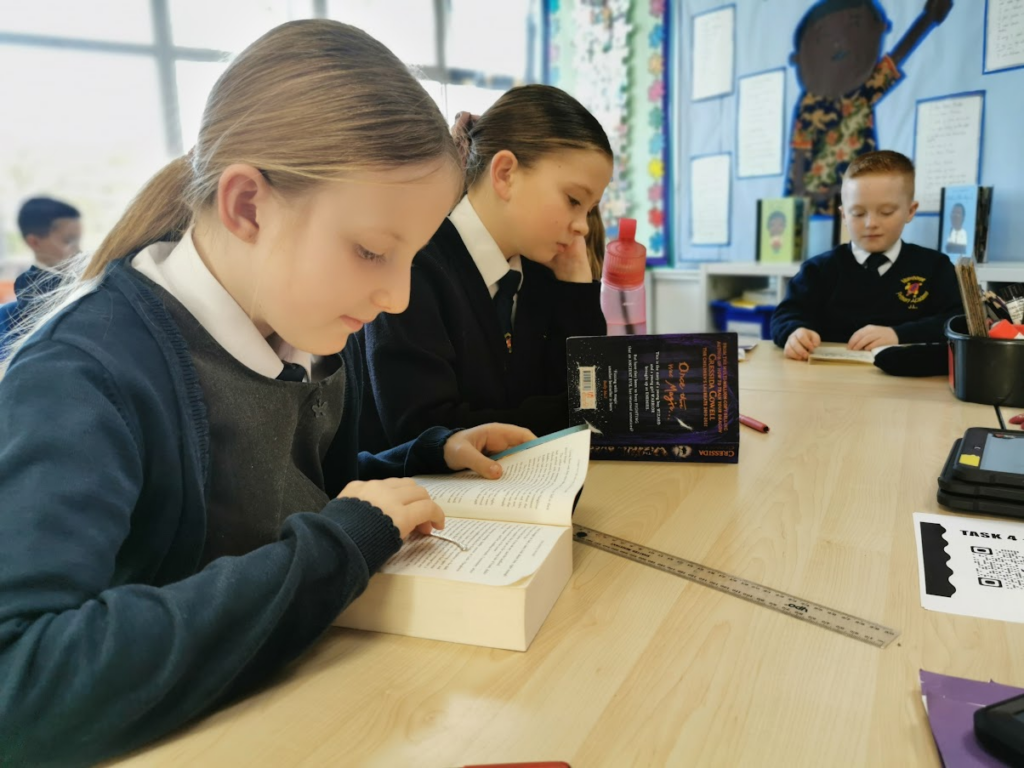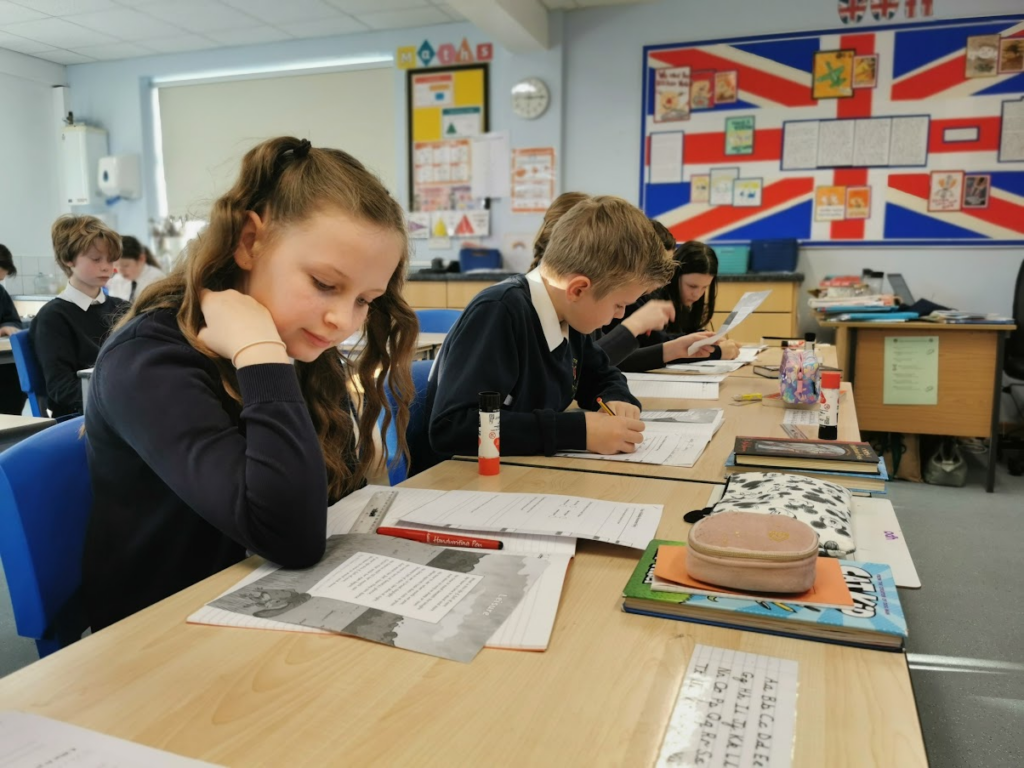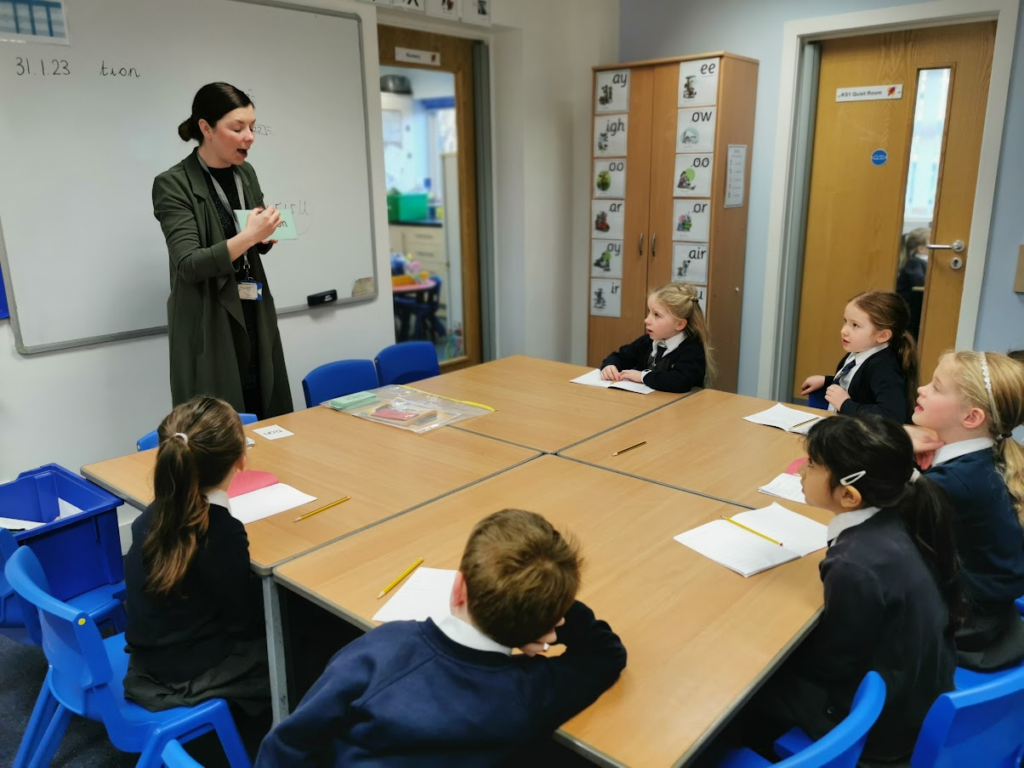Reading & Phonics
“Books put you in a world you are never in.” – pupil voice
This page contains all the information about how we teach, promote and celebrate reading at our school.
To have a love of reading is one of the fundamental priorities of our curriculum vision.
We understand the importance that reading plays in the lives of happy, successful and valued adults and we want our children to get the best start in this; one of the most vital parts of a child’s development.
Reading Curriculum Statement
At Nunthorpe Primary pupils develop reading in all subjects to support their acquisition of knowledge. Pupils are taught to read fluently, understand extended prose (both fiction and non-fiction) and encouraged to read for pleasure. Nunthorpe Primary do everything to promote wider reading. We provide library facilities and set ambitious expectations for reading at home.
Pupils’ acquisition and command of vocabulary are key to their learning and progress across the whole curriculum. We develop vocabulary actively, building systematically on pupils’ current knowledge. We recognise that it is vital for pupils’ comprehension that they understand the meanings of words they meet in their reading across all subjects.

Planning for Progress
Decoding words, developing language and acquisition of comprehension skills are taught simultaneously. Children in early years get off to a quick start and begin to learn phonics using the Read, Write Inc. scheme. This continues into Year 1 and the intention is that all pupils are confident and competent with their phonic ability by the end of Year 1. In Reception and Year 1, children also begin to develop comprehension skills in small mixed ability groups. They work on developing vocabulary, simple retrieval skills, sequencing and inference. In Year 2 pupils’ reading is more focused on reading comprehension skills although some pupils are supported to continue to develop phonic ability.
From nursery, children share a book 1:1 at least once a week with a member of the EYFS team and a home loan scheme is in place allowing children to take a book home to share. First letters from Read, Write Inc are sent home along with CVC words when appropriate. Pupils in Reception and Year 1 read books matched to phonic ability at home and school and take home phonics linked letters, sounds and/or words as appropriate. Most pupils from Year 2 upwards read books at their individual comprehension level using the Accelerated Reader programme. Pupils take these books home and are rewarded for regular reading and accuracy. Pupils from Year 2 upwards are taught explicit comprehension skills through quality first teaching in small ability groups, whole class and small intervention groups using carefully selected extracts and whole class texts.
High Expectations for All

Pupils are taught phonics in groups based on individual ability. Reading lessons are taught in both small ability groups and whole class/ intervention groups and work is differentiated appropriately. We have high expectations for all and ensure that all pupils keep up and catch up through interventions. Continuous assessment is used to support and challenge.
“I love reading. I find it really relaxing.” – pupil voice
A Love of Reading and Parental Engagement
Reading has high priority throughout school. Books, from a school book spine, are read to pupils by their teachers. Each class has a reading display that motivates pupils to read and includes fiction, non-fiction and poetry books (some of which have cross-curricular links). Pupils are rewarded for their reading through certificates and end of term treats.
Parents write comments in reading logs in the younger years and teachers praise pupils and inform parents of progress using a parental engagement app, parent meetings and regular data captures. We take every opportunity to celebrate reading through events such as: World Book Day, Book Fairs, World Poetry Day, Bath Book Bed Day, theatre visits and Story Swaps.

In Foundation Stage and Key Stage 1, parents are invited in to school during the autumn term when staff discuss the importance of early reading and what this looks like at each stage. Phonics is also covered in these sessions and staff model what we do with the children and provide the parents with a copy of the sounds and the rhymes which accompany them. After this, 1:1 coaching meetings are offered if staff believe it would appropriate for some children.
Click the buttons below to see which books and poems are read in each class…
Our Reading Spines…
Our Poetry Spine…
The rhymes used in our Early Years…
Standards and Attainment
Pupils make maximum progress in phonics and reading through a range of planned assessment opportunities. Regular ongoing assessment and more formal assessment informs teachers and leaders of pupil progress which is shared with parents and governors. Groupings are closely monitored and children move groups based on their attainment. Intervention groups are planned based on assessments.
High Quality Teaching and Learning
The English leader ensures that all staff have high quality training up to date training so that they are experts at teaching reading. Leaders, in school and across the trust, monitor and moderate to ensure high quality teaching and assessment.
Phonics
Decoding words, developing language and acquisition of comprehension skills are taught simultaneously. Children in early years get off to a quick start and begin to learn phonics using the Read, Write Inc. scheme. Click here to read more about Read, Write Inc.
Teaching of phonics begins in Nursery and continues in Reception year at the child’s individual pace. Children are taught by trained adults in small groups. The intention is that all pupils are confident and competent with their phonic ability by the end of Year 1.
In Reception and Year 1, children also begin to develop comprehension skills in small mixed ability groups. They work on developing vocabulary, simple retrieval skills, sequencing and inference.





